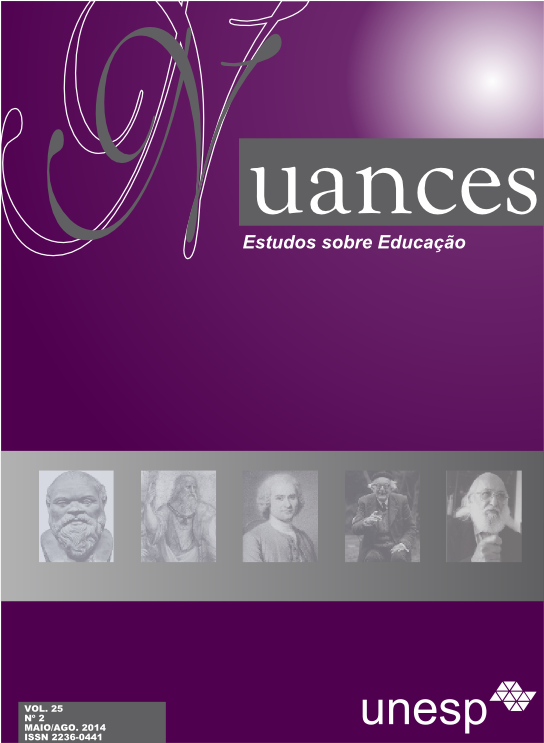ETHNOGRAPHIC RESEARCH WITH CHILDREN: THEORETICAL AND METHODOLOGICAL PATHS
DOI:
https://doi.org/10.14572/nuances.v25i2.3189Keywords:
Children, Ethnography, Participant ObservationAbstract
This paper discusses methodological issues in educational research with young children. It approaches qualitative ethnographic research, highlighting participant observation as one of the most appropriate strategies for research developed in schools for children in the first two years of basic education, in other words, students between six and seven years old. It is suggested that ethnographic research and participant observation can diminish the differences between observer (adult) and observed (kids), when considering the peer culture in childhood , allowing the researcher to insert itself in a more properly way on a cultural reality of a given group. Furthermore, it is necessary to respect ethical principles, consider the specificities of young children and use various strategies to generate empirical data in order to enable them to participate more actively in educational research in which the object of study is childhood. Thus, young children could be recognized as producers of knowledge and subject of the investigative process.
Downloads
Downloads
How to Cite
Issue
Section
License
Atribuição-NãoComercial
CC BY-NC
Esta licença permite que outros remixem, adaptem e criem a partir do seu trabalho para fins não comerciais, e embora os novos trabalhos tenham de lhe atribuir o devido crédito e não possam ser usados para fins comerciais, os usuários não têm de licenciar esses trabalhos derivados sob os mesmos termos.





